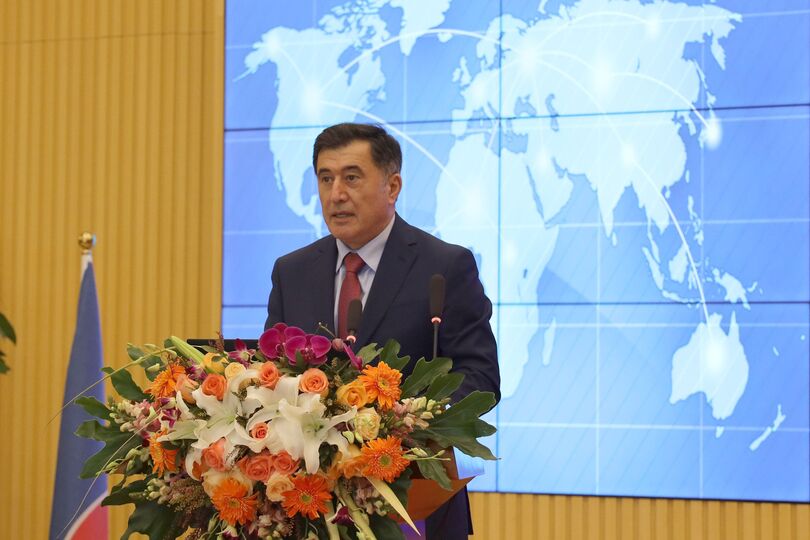On 12 December 2019 in Sanya, SCO Secretary-General Vladimir Norov attended the 3rd Forum for ASEAN-China Private Higher Education Development and Cooperation. The forum was organised by the ASEAN-China Centre, the People's Government of Sanya, the Regional Centre for Higher Education and Development of the South-East Asian Ministers of Education Organisation (SEAMEO RIHED), and the University of Sanya.
The forum focused on innovation and efficiency in higher education, new prospects for cooperation between ASEAN-China private higher education institutions in the context of joint construction of the Belt and Road Initiative.
The forum was attended by University of Sanya President Lu Dan, SEAMEO RIHED Director Chantavit Sujatanond, Executive Secretary of the China-ASEAN Education Cooperation Week Organising Committee Liu Baoli, President of the YARSI University (Indonesia) Fasli Jalal, Rector of Hainan Normal University Lin Qiang, Executive Chairman and Principal of the East Asia Institute of Management (Singapore) Dr Andrew Chua Soon Kian, representative of the Russian People's Friendship University (RUDN, a higher education institution which is part of SCO University) Angelina Osipova and senior administrators from over 60 universities in China and ASEAN.
In his remarks, SCO Secretary-General Vladimir Norov introduced event participants to the organisation's major efforts in youth policy and higher education.
He stressed that in today's increasingly complex world, the key task for any country is to build a system of continuous and innovative high-tech education to deal with the strategic tasks of a modern economy.
The Secretary-General noted that 800 million young people live on the territory covered by the organisation, which is half of all youth in the world.
"Leaders of the SCO member states prioritise work targeting youth, the importance of guiding young people's energy towards constructive activity — primarily through accessible and quality education that allows young people to achieve their full potential. The Joint Address for the Youth and the Action Plan on its Implementation adopted by the SCO heads of state at the 2018 Qingdao Summit demonstrate careful and thorough attention to this issue by the SCO member states," Vladimir Norov stressed.
The participants were informed about important documents regulating cooperation in education like the SCO Development Strategy until 2025 and the Agreement between the governments of the SCO member states on cooperation in education (Shanghai, 2006) that create a solid foundation for overall strengthening of cooperation in education.
The SCO Secretary-General also talked to participants about the results of cultural and humanitarian cooperation between the SCO and ASEAN, UNESCO and ESCAP. He proposed that the SCO and the ASEAN-China Forum organise a joint conference on cooperation between SCO University and the ASEAN University Network.
University of Sanya was founded in 2005 and is located in the city of Sanya, Hainan Province. Funded by Fortune 500 Geely Holding Group, it is the largest university in Sanya and the fastest-growing and most viable private university in China.
SCO University is a network of higher education institutions in the SCO member states that collaborate in training highly qualified professionals based on coordinated innovative training programmes in areas of priority interest for the socioeconomic development of the participating countries.
SCO University unites 79 universities, including 14 in Kazakhstan, 23 in China, 8 in the Kyrgyz Republic, 22 in Russia, 11 in Tajikistan and 1 in Belarus.
The initiative to establish SCO University was proposed by President of the Russian Federation Vladimir Putin at a meeting of the SCO Heads of State Council on 16 August 2007 in Bishkek.
The ASEAN University Network (AUN) was established in November 1995 in Bangkok and consists of 30 universities from the ASEAN member states.
AUN has partnership agreements with the China Scholarship Council, the Japan Foundation, the Ministry of Gender Equality and Family of the Republic of Korea, the German Academic Exchange Service (DAAD), the European University Association, Asian Development Bank and UNESCO.
